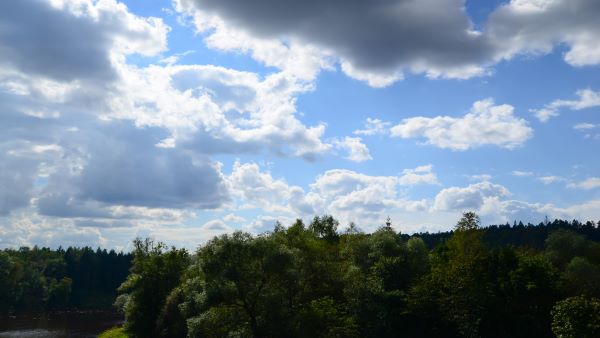
By Sen. Doug Mastriano (R-33)
Weather and climate modification are becoming increasingly prominent topics in public discussions, particularly considering current climate conditions and extreme weather events. Although geoengineering might seem novel to some, the practice of modifying weather and climate has a long history.
For decades, cloud seeding methods have been used in the US for small-scale weather modification, especially in western states. This technique involves injecting chemicals into the atmosphere via aircraft, ground generators or a combination of both, to seed clouds with the goal of increasing rainfall or snowpack.
Public opposition to weather engineering activities has been growing. Critics argue that methods like aerosol injection increase air pollution and may induce severe weather events. Despite more than 70 years of weather modification, the efficacy of cloud seeding remains unproven. Some scientists assert that there is insufficient evidence of its effectiveness and caution that cloud seeding could potentially cause extreme droughts or flooding.
Silver iodide, a common chemical used in cloud seeding, is toxic and regulated under the Clean Water Act as a hazardous substance. A peer reviewed study published in the Journal of Ecotoxicology and Environmental Safety concluded that repeated cloud seeding can heighten toxicity levels in ecosystems as seeding pollutants accumulate in the environment.
The Pennsylvania General Assembly in 1967 passed the Weather Modification – Regulating Rain Making Act, creating a Weather Modification Board within the Department of Agriculture. This legislation was in response to unauthorized cloud seeding by the Blue Ridge Weather Modification Association, which released silver iodide into the air to suppress hail in Fulton and Franklin counties. Similar laws were enacted in Maryland and West Virginia in the 1960s following complaints from farmers that cloud seeding caused droughts. The public also objected to the U.S. government’s use of cloud seeding as a weapon of war in Vietnam.
There recently has been substantial government and private-interest investment in expanding weather and climate interventions to affect global temperatures or alter atmospheric conditions. Solar Radiation Modification (SRM) geoengineering activities include the use of ground-based, airborne, and space-based facilities, to reduce the amount of sunlight reaching the Earth’s surface by increasing sulfate aerosols in the upper atmosphere to create reflective cloud cover.
Although SRM techniques like stratospheric aerosol injection (SAI) and marine cloud brightening (MCB) could potentially reduce global temperatures rapidly, they also create numerous negative consequences. These techniques increase harmful pollution, disrupt microclimates necessary for the survival of plants, trees, animals, and people, and lead to potentially catastrophic environmental impacts.
In 2023 the White House released a report titled “Congressionally Mandated Research Plan and Initial Research Governance Framework Related to Solar Radiation Modification” outlining plans for SRM and other potentially hazardous atmospheric experiments. The report acknowledges that the U.S. government is funding and coordinating SRM research activities and describes the government’s collaboration with other governments and global organizations, including the United Nations World Meteorological Organization. These partnerships lack necessary public consent and oversight.
Private initiatives funded by wealthy individuals such as Bill Gates in partnerships with academic institutions and entrepreneurial groups are also underway to employ SRM techniques. One such start-up, Make Sunsets, conducted an SRM experiment without permission in Mexico, leading the Mexican government to ban solar engineering after the company launched helium balloons filled with sulphur dioxide particles into the atmosphere.
Rhode Island has led the nation since 2017 in seeking to establish a comprehensive governing framework for SRM. Nine other states – including New Hampshire, Tennessee, Illinois, South Dakota, Kentucky, Minnesota, Missouri, and Ohio – introduced similar legislation this year. Tennessee in April became the first to state to pass environmental legislation addressing the hazardous pollution generated by geoengineering.
The potential for irreparable harm to life and property resulting from solar geoengineering justifies an outright ban on SRM activity. Given the cost for SAI that has been calculated through 2100, the state’s legislature is obligated to reject these hazardous polluting activities in the skies of Pennsylvania.
Elected lawmakers must fulfill their oath of office to follow the state’s constitution and preserve clean air, clean water, and a healthy environment (Article 1, Section 27) for present and future generations. I therefore am introducing Senate Bill 1264, the Clean Air Preservation Act, and look forward to its consideration and approval by the Senate.
Sen. Doug Mastriano represents the 33rd Senatorial District covering Adams and Franklin counties.
Media contact: Michele Jansen
717-264-6100


